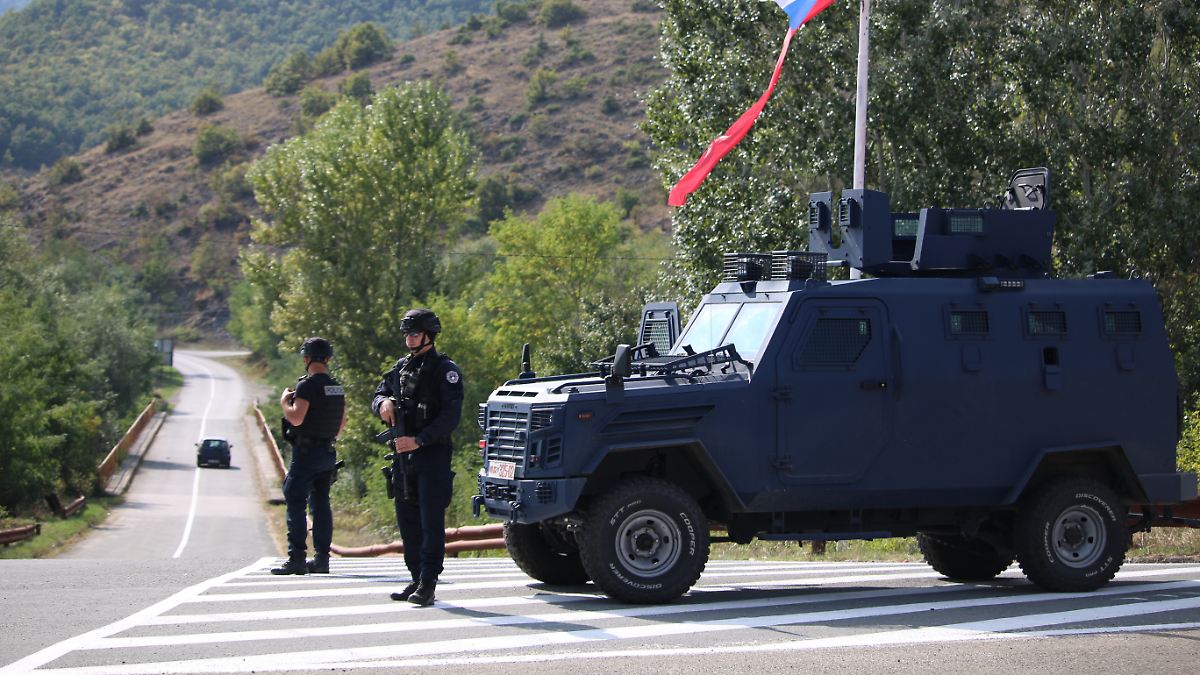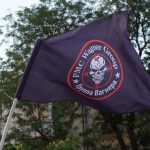Attacks planned by Serbia?
Kosovo fears new Balkan war
This audio version was artificially generated. More info | Send feedback
A week ago, 30 armed and masked men attacked a Kosovo village on the border with Serbia. Kosovo accuses the neighboring country of planning and supporting the attack. Is there a threat of a new war in the Balkans?
In connection with the renewed tensions in Kosovo, Kosovo’s Foreign Minister Donika Gervalla-Schwarz is warning of a new war in the Balkans. “If the international community tolerates Serbia’s actions, there will be a war,” said the minister on Deutschlandfunk. Serbia wants to create facts to force Kosovo to negotiate territorial issues in Brussels. “Fortunately the attempt failed eight days ago, but we don’t know what the plans are for the future.”
She therefore called on the EU to freeze Serbia’s status as a candidate country and to stop monetary payments. On Thursday, Kosovo’s President Vjosa Osmani blamed his northern neighbor Serbia and its President Aleksandar Vucic for the escalation of violence in the north of the country. Serbia still has territorial claims on Kosovo and is trying to implement a “Crimean model,” she said, alluding to Russian actions in Ukraine.
About a week ago, 30 armed and masked men opened fire on Kosovo police officers in a village not far from the border with Serbia. According to police, a police officer and three attackers were killed in the exchange of fire.
Kosovo: Attacks supported by Serbia
The Serbian attackers are said to have previously trained on Serbian territory. Kosovo’s Prime Minister Albin Kurti announced this on X (formerly Twitter). He also posted drone footage there to show these exercises. “The attacks (on Kosovo police officers) occurred with the full support and planning of the Serbian state,” Kurti wrote.
The Serbian aggressors took the drone footage themselves and Kosovo’s police seized them along with weapons, explained Interior Minister Xhelal Svecla, according to the Kosovo newspaper “Koha Ditore”. The exercises took place at the Serbian military base Kopaonik near the border and in Pasuljanske Livade, one of the largest military training areas in Serbia. In addition, exercises took place on a property that belongs to the Kosovo Serb politician and businessman Milan Radoicic, who claimed responsibility for the attack on the Kosovar police officers.
Since the incident there had been reports of a Serbian troop concentration at the border. NATO is therefore planning to increase its presence in the Western Balkan country. There are currently around 3,400 KFOR soldiers stationed in Kosovo, including around 70 Bundeswehr members.
Kosovo declared its independence from Serbia in 2008. This is not recognized by the government in Belgrade or by the Serb minority in Kosovo. Over 90 percent of Kosovo’s population are ethnic Albanians. In the north of the country, however, Serbs make up the majority.




